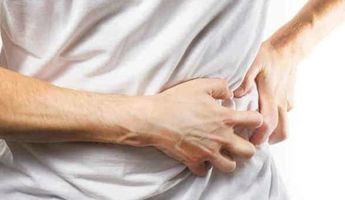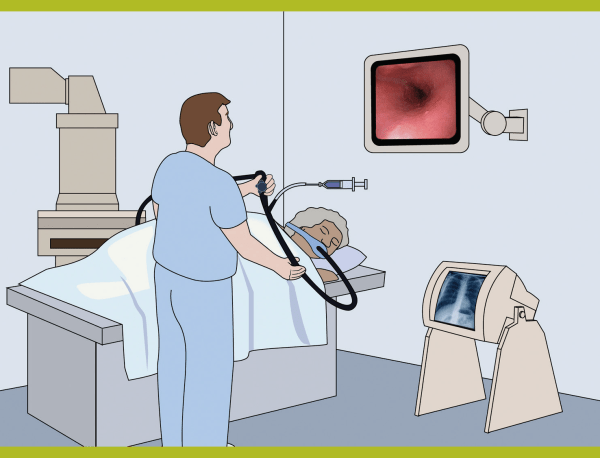Endoscopic Retrograde Cholangiopancreatography (ERCP) in Russian Federation
Search and Compare the Best Clinics and Doctors at the Lowest Prices for Endoscopic Retrograde Cholangiopancreatography (ERCP) in Russian Federation

Find the best clinics for Endoscopic Retrograde Cholangiopancreatography (ERCP) in Russian Federation
With Medijump you can browse 1 facilities offering Endoscopic Retrograde Cholangiopancreatography (ERCP) procedures in Russian Federation. The cheapest price available is $773 in Moscow. And for the cheapest price globally, prices start from $614 in India.
Endoscopic Retrograde Cholangiopancreatography (ERCP) in Moscow
Price: $ 773
India offers the best prices Worldwide
Price: $ 614
JSC Medicina Clinic, located in Spiridonyevskiy Pereulok, Moscow, Russian Federation offers patients Endoscopic Retrograde Cholangiopancreatography (ERCP) procedures among its total of 288 available procedures, across 17 different specialties. The cost of a Endoscopic Retrograde Cholangiopancreatography (ERCP) procedure starts from ฿27,800, whilst the national average price is approximately ฿27,800. There are many specialists available at the Clinic, with 10 in total, and they are accredited by JCI Accredited
- Home
- Russian Federation
WHY US?
At Medijump, we're making medical easy. You can search, compare, discuss, and book your medical all in one place. We open the door to the best medical providers worldwide, saving you time and energy along the way, and it's all for FREE, no hidden fees, and no price markups guaranteed. So what are you waiting for?

Free

Best Price

Widest Selection

Risk-Free
What you need to know about Endoscopic Retrograde Cholangiopancreatography (ERCP) in Russian Federation

Endoscopic Retrograde Cholangiopancreatography (ERCP) is a procedure to diagnose and treat problems of the bile and pancreatic duct by combining upper gastrointestinal endoscopy and X-rays. For diagnostic purposes, the procedure is performed to find the cause of obstructive jaundice, chronic pancreatitis, and pancreatic tumor. For therapeutic purposes, the procedure can be performed to extract gallstones or other biliary debris, to treat the sphincter of Oddi (endoscopic sphincterotomy), to insert a stent into the common bile duct and/or the pancreatic duct, and to dilate the strictures.
What does a Endoscopic Retrograde Cholangiopancreatography (ERCP) Procedure Involve?
Most of ERCP are carried out under local anesthetic, but in some cases, you may receive a general anesthetic. Your doctor inserts the endoscope (a long flexible tube with light and camera on its end) through your mouth and down to the esophagus, stomach, and the first part of the small intestine. Then, your doctor passes a tube through the endoscope and injects a dye, which will highlight the organ on the X-ray.
How Long Should I Stay in Russian Federation for a Endoscopic Retrograde Cholangiopancreatography (ERCP) Procedure?
You can leave the hospital on the same day of the procedure or you may need to stay overnight. You’ll likely discuss the result of the diagnosis once you regained consciousness or the next day of the procedure. Plan to stay in Russian Federation for 2 to 3 days to allow for a recovery period.
What's the Recovery Time for Endoscopic Retrograde Cholangiopancreatography (ERCP) Procedures in Russian Federation?
You must rest for at least 24 hours and you should be able to resume your normal activities the next day after the surgery, but make sure to take things easy for a couple of days.
What sort of Aftercare is Required for Endoscopic Retrograde Cholangiopancreatography (ERCP) Procedures in Russian Federation?
You will need to avoid strenuous activities for several days and follow a special diet during your recovery period. Your doctor will give you instructions on how to care for yourself after the procedure.
What's the Success Rate of Endoscopic Retrograde Cholangiopancreatography (ERCP) Procedures in Russian Federation?
ECRP is safe and effective. However, it has been estimated that the procedure carries around 3.5 to 5 percent risk of post-ERCP pancreatitis (PEP). Other side effects and risks associated with ECRP include infection of the gallbladder or the bile duct, excessive bleeding (hemorrhage), perforation in the pancreatic or bile ducts, tissue damage from X-ray exposure, and an abnormal reaction to the sedative. Complications occur in about 5 to 10 percent of all ERCP procedures.
Are there Alternatives to Endoscopic Retrograde Cholangiopancreatography (ERCP) Procedures in Russian Federation?
If ERCP is not the right procedure for you, your alternatives include endoscopic ultrasound, CT Scan, and MRI or MRCP (a special MRI of the bile ducts).
What Should You Expect Before and After the Procedure
The result of ERCP will help your doctor confirm their diagnosis about your health problem, which will help them consider the best treatment option for you.
Whilst the information presented here has been accurately sourced and verified by a medical professional for its accuracy, it is still advised to consult with your doctor before pursuing a medical treatment at one of the listed medical providers
No Time?
Tell us what you're looking for and we'll reachout to the top clinics all at once
Enquire Now

Popular Procedures in Russian Federation
Prices Start From $106

Price on Request

Prices Start From $131

Prices Start From $47

Recommended Medical Centers in Russian Federation for Endoscopic Retrograde Cholangiopancreatography (ERCP)

- Interpreter services
- Translation service
- Religious facilities
- Medical records transfer
- Medical travel insurance
- Health insurance coordination
- TV in the room
- Safe in the room
- Phone in the room
- Private rooms for patients available

- Interpreter services
- Translation service
- Religious facilities
- Medical records transfer
- Medical travel insurance
- Health insurance coordination
- TV in the room
- Safe in the room
- Phone in the room
- Private rooms for patients available

- Interpreter services
- Translation service
- Religious facilities
- Medical records transfer
- Medical travel insurance
- Health insurance coordination
- TV in the room
- Safe in the room
- Phone in the room
- Private rooms for patients available
Endoscopic Retrograde Cholangiopancreatography (ERCP) in and around Russian Federation
The Russian Federation, or Russia, is a transcontinental country that stretches over a vast expanse of Eastern Europe and northern Asia. Once a mighty tsarist empire and a communist superpower, this massive country is enigmatic, intimidating, and fascinating all at the same time. It has everything, from the idyllic countryside and historic cities to scenic beauty and artistic riches. Today, Russia is a famous medical tourism destination. The number of medical tourists seeking high-quality healthcare continues to double each year. These medical tourists mainly come from Asian countries, such as China, South Korea, India, Japan, and Vietnam. They come to receive a wide range of medical care, with IVF treatment, dental services, cosmetic surgery, and cardiovascular surgery being the most sought-after.
Popular Parts of the Russian Federation
Most visitors are drawn to the western part of the country, particularly to Moscow and St. Petersburg. Moscow, the capital of Russia, is popular for its show-stopping architecture, rich history, amazing culture, and great food. Some of the most famous landmarks are the St. Basil’s Cathedral, the Red Square and the Lenin Mausoleum, the Moscow Kremlin, The Tretiakov Gallery, and the Wooden Palace of Tsar Alexei Mikhailovich. St. Petersburg, Russia’s second city and imperial capital, is one of the most gracious cities in Europe. People come to this city to visit the State Hermitage Museum, the Grand Palace, and Catherine Park.
Weather and Climate in the Russian Federation
There are four seasons in Russia. December to February are the winter months, which is cold and snowy, with short days and long nights. The average temperature during this season is around -10°C to 3°C. Spring comes in March, bringing warmer, but rainy weather. Summer, from June to August, is hot and humid, with an average temperature of around 12°C to 26°C. The weather can be quite unpredictable in the summer, and downpours can come unexpectedly. Autumn is from September to October and is warm and pleasant.
Getting around in the Russian Federation
The largest airport in Russia that receive the most international flights is Sheremetyevo Alexander S. Pushkin International Airport in Moscow. It serves both domestic and international flights to many cities around the globe. Since Russia is the world’s largest territory, internal flights are the fastest and most convenient way to get around. Trains have an extensive network, and, with many comfortable overnight services, is considered as the best way to get around. Buses are a great option to travel to the areas not covered by the train. Some really remote destinations may only be reached by private cars or taxis. Taxis are relatively inexpensive and widely available.
Tourist Visas in the Russian Federation
Nationals of 62 nations, including Brazil, South Africa, South Korea, North Macedonia, and Hong Kong, can visit and stay in Russia without a visa for a period of 14 to 90 days. Citizens of other countries not listed in the visa exemption agreement need a visa to enter. Electronic visas are available for citizens of several countries, including all EU countries, China, and India.
Additional Information
- Local Currency: Russian uses the Russian ruble (RUB) as its official currency. 1 USD is equivalent to 77.16 RUB.
- Money & Payments: The easiest way to get rubles is by using ATMs, which is available throughout the country. Major credit and debit cards, including MasterCard and Visa, are accepted in larger hotels and restaurants, but cash is more reliable. Some places may offer to accept euros and dollars, but this is illegal. Tipping is expected, around 10% to 15% of the bill. Always tip in cash and give it directly to the waiter.
- Local Language: There are over 100 minority languages spoken in Russia, but the official and most widely spoken language is Russian. English is spoken to some degree, especially in major cities.
- Local Culture and Religion: Most of Russia’s population adheres to Christianity, with the Russian Orthodox Church being the biggest Christian denomination. There are also small groups of Muslims, Buddhists, and Jewish.
- Public holidays: New Year’s Day, Orthodox Christmas Day, Defender of the Fatherland Day, Victory Day, Russia Day, and Unity Day are some of the most important public holidays in Russia.
Popular Searches
- Plastic Surgery in Thailand
- Dental Implants in Thailand
- Hair Transplant in Thailand
- Breast Augmentation Thailand
- Gastric Sleeve in Thailand
- Gender Reassignment Surgery in Thailand
- Laser Hair Removal in Bangkok
- Botox in Bangkok
- Dermatology in Bangkok
- Breast Augmentation in Bangkok
- Coolsculpting in Bangkok
- Veneers in Turkey
- Hair Transplant in Turkey
- Rhinoplasty in Turkey
- Stem Cell Therapy in Mexico
- Rhinoplasty in Mexico
- Liposuction in Mexico
- Coolsculpting in Tijuana
- Rhinoplasty in Korea
- Scar Removal in Korea
- Gastric Sleeve in Turkey
- Bone Marrow Transplant in India
- Invisalign in Malaysia
- Plastic Surgery in the Dominican Republic
- Tummy Tuck in the Dominican Republic
- Plastic and Cosmetic Surgery in Poland
- Rhinoplasty in Poland
- Hair Implant in Poland
- Dental Implants in Poland
- IVF in Turkey
